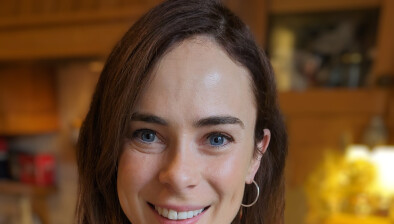Mary Hough: ‘Dunne’ principles remain the appropriate legal test for medical negligence in Ireland

Mary Hough
Mary Hough, partner and head of healthcare at Hayes solicitors, explores the Supreme Court ruling reaffirming that the ‘Dunne’ principles remain the appropriate legal test for establishing liability in medical negligence litigation in Ireland.
In its recent decision in the case of Ruth Morrissey and Paul Morrissey v Health Service Executive, Quest Diagnostics Incorportated and Medlab Pathology Limited the Supreme Court has affirmed that the ‘Dunne’ principles remain the appropriate legal test for establishing liability in medical negligence litigation in Ireland.
In an unusual step the Supreme Court has sought to allay concerns which had been expressed that the standard of care had changed from the ‘Dunne’ principles to one of “absolute confidence”. The Supreme Court has unequivocally confirmed that a court has no role in imposing a standard of approach on a professional. It has confirmed that, rather, in accordance with the ‘Dunne’ principles it is the standards of the profession itself, as demonstrated by the evidence, which impose the standard required.
Background
The claims of the Morrisseys have arisen in tragic circumstances. Ms. Morrissey is terminally ill from cancer. She had undergone screening in accordance with the National Cervical Screening Programme (CervicalCheck) in August 2009 and again in August 2012. In both instances, her smear test was reported as negative for abnormalities and she was provided with a clear result. However, in May 2014, Ms. Morrissey attended at her G.P. following symptomatic bleeding and was referred for further testing. A biopsy and an MRI scan subsequently disclosed the existence of cervical cancer.
Following this diagnosis, the 2009 and 2012 smears provided by Ms. Morrissey were audited and it was reported that the original results provided in respect of both tests were incorrect. By 2015, the results of the audits had been communicated to CervicalCheck. However, their results were not disclosed to Ms. Morrissey until mid-2018, when Ms. Morrissey herself made inquiries as to whether there had been an error in her case. Subsequently she and her husband issued High Court proceedings and applied to have their case heard urgently.
The High Court
In a judgment delivered on 3 May 2019 following an urgent hearing, the High Court (Morrissey & anor v. Health Service Executive & ors [2019] IEHC 268), awarded €2,152,508 in favour of Ruth and Paul Morrissey against all the Defendants. A further €10,000 in nominal damages was awarded against the HSE by reason of its failure to notify Ruth Morrissey of the results of the audit conducted in 2014.
Addressing the proper approach to be applied in a case involving medical screening such as this one, the trial judge considered that the legal standard of care and the factual standards and criteria to which the screener must adhere are different, although interrelated, issues.
The trial judge relied on the English Court of Appeal decision in Penney, Palmer & Canon v East Kent Health Authority (2000) Lloyd’s Rep Med 41 (Penney Palmer) which also considered the allegedly negligent misreading of smear tests by cytology screeners. He found that individual screeners of the smear tests must have “absolute confidence” before giving a clear result.
The Defendants sought leave to appeal directly to the Supreme Court, which, following an oral hearing, held that the question of the standard of care to be applied in screening cases met the constitutional threshold for leave to appeal generally and, having regard to the urgency which attends its clarification, also met the additional criteria necessary to grant leapfrog leave allowing the appeal to be brought to the Supreme Court without being heard by the Court of Appeal.
The Dunne Principles
The trial judge in the High Court held that the classic statement of the applicable legal standard of care in the context of medical negligence cases is set out by Finlay C.J. in Dunne v. National Maternity Hospital. This standard of care is commonly known as the “Dunne” principles or the “Dunne” test and it is as follows:
- The true test for establishing negligence in diagnosis or treatment on the part of a medical practitioner is whether he has been proved to be guilty of such failure as no medical practitioner of equal specialist or general status and skill would be guilty of if acting with ordinary care.
- If the allegation of negligence against a medical practitioner is based on proof that he deviated from a general and approved practice, that will not establish negligence unless it is also proved that the course he did take was one which no medical practitioner of like specialisation and skill would have followed had he been taking the ordinary care required from a person of his qualifications.
- If a medical practitioner charged with negligence defends his conduct by establishing that he followed a practice which was general, and which was approved of by his colleagues of similar specialisation and skill, he cannot escape liability if in reply the plaintiff establishes that such practice has inherent defects which ought to be obvious to any person giving the matter due consideration.
- An honest difference of opinion between doctors as to which is the better of two ways of treating a patient does not provide any ground for leaving a question to the jury as to whether a person who has followed one course rather than the other has been negligent.
- It is not for a jury (or for a judge) to decide which of two alternative courses of treatment is in their (or his) opinion preferable, but their (or his) function is merely to decide whether the course of treatment followed, on the evidence, complied with the careful conduct of a medical practitioner of like specialisation and skill to that professed by the defendant…
The Supreme Court
The Supreme Court dismissed all of the Defendants appeals save for the appeal of Medlab in relation to the award of damages in respect of loss of service. It grouped the issues in relation to which it made findings into 5 sets of issues:
1. The proper standard of approach to be adopted by a screener involved in a scheme such as CervicalCheck.
The Supreme Court confirmed that the “Dunne” principles remain the basis for identifying the legal standard of care by reference to which a claim in clinical negligence is to be assessed. It affirmed that the “Dunne“ test requires a court to determine what standard a reasonable professional would apply. The court deliberately used the phrase “standard of approach” to describe the standard that a reasonable screener would be expected to apply in order to avoid any confusion with the term “standard of care” which has a precise legal meaning.
2 & 3. The contention made by both Quest and by Medlab which suggested that the trial judge had failed to engage properly with certain aspects of the case which they made on the facts and had, thereby, delivered an insufficiently reasoned judgment.
The Supreme Court held that the judgment did not, in its reasoning, fall below the irreducible minimum of reasoning, and concluded that the grounds of appeal put forward under these headings must fail.
4. The fourth set of issues arose in respect of the appeal brought by the HSE in relation to the finding of negligence made against it.
The High Court had found the HSE liable both on the basis of being vicariously responsible for the actions of the laboratories and also on the basis of having a non-delegable duty to the patients who availed of CervicalCheck such that the HSE must be taken to have accepted responsibility for the non-negligent delivery of the service. The Supreme Court held that HSE was not vicariously liable for the negligent acts of the laboratories but held that it had a non-delegable duty in respect of patients availing of CervicalCheck.
5. The fifth set of issues related to the award of damages.
The Supreme Court made findings in respect of two sets of issues arising under the heading of damages:
- the maximum or so called ‘cap’ on general damages and
- The award of damages to Mr. Morrissey in respect of losses attributable to having to replace services which would have been provided to the family by Ms. Morrissey had it not tragically transpired that she will have a significantly reduced life expectancy.
The first issue of appeal relating to damages concerned the award by the High Court of €500,000 for general damages to Ms. Morrissey. Following a detailed analysis of the relevant case law, the Supreme Court held that €500,000 now represents the appropriate maximum level of damages to be awarded for pain and suffering (general damages) in personal injury cases.
The second issue of appeal relating to damages concerned the award of damages to Mr. Morrissey in respect of losses attributable to having to replace services which would have been provided to the family by Ms. Morrissey had it not tragically transpired that she will have a significantly reduced life expectancy. The Supreme Court noted that such damages can, under the law as it currently stands, only be recovered in an action brought by dependants under the Civil Liability Acts and concluded that any change in the law in this area is a matter which must be the subject of legislation. It therefore allowed the appeal in respect of the award of the sum in question to Mr. Morrissey and asked the parties to endeavour to agree on the amount of such damages, failing which the parties may make submissions to the court.
Conclusion
The “Dunne” principles remain the bedrock upon which medical negligence litigation in the State is founded. The clarity provided by the Supreme Court in relation to the legal test for medical negligence will be welcomed by medical practitioners, many of whom had expressed concerns arising from the use of the terminology “absolute confidence” in the High Court decision in the Morrissey case. It is also expected that this clarity in relation to the legal test to be applied will be welcomed by those women who have cases pending before the High Court which arise in a similar factual context to the claims of Ruth and Paul Morrissey.

- Mary Hough is a partner and head of healthcare at Hayes solicitors.







